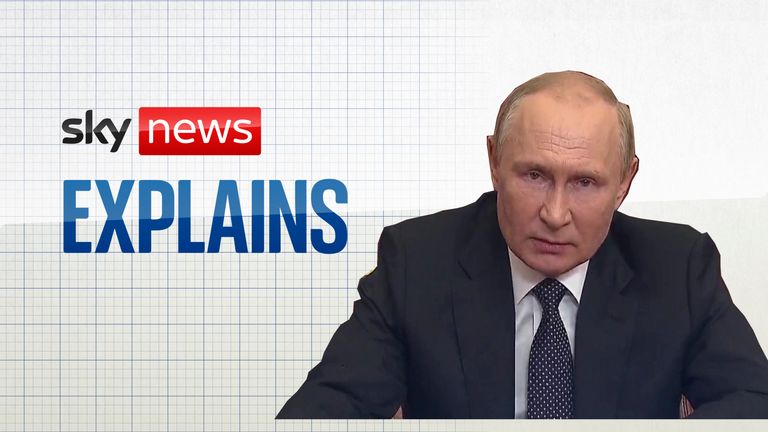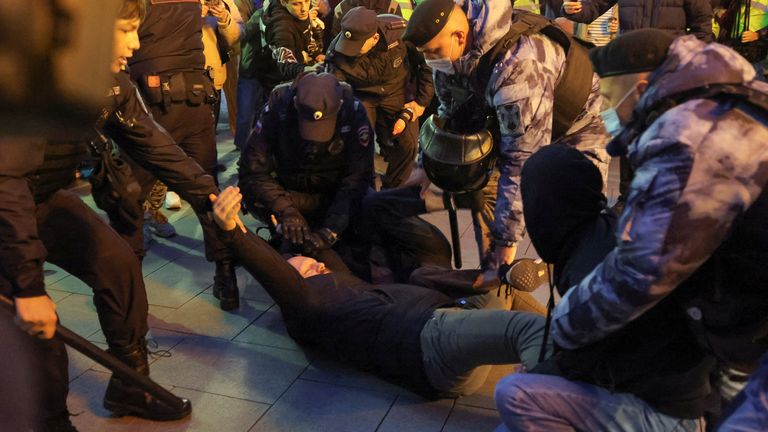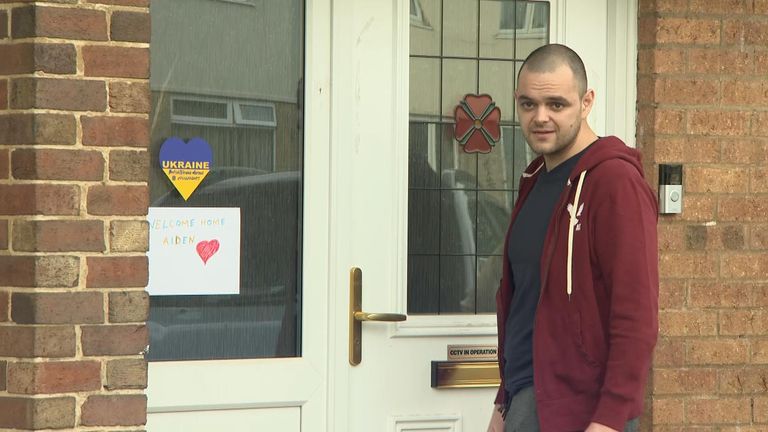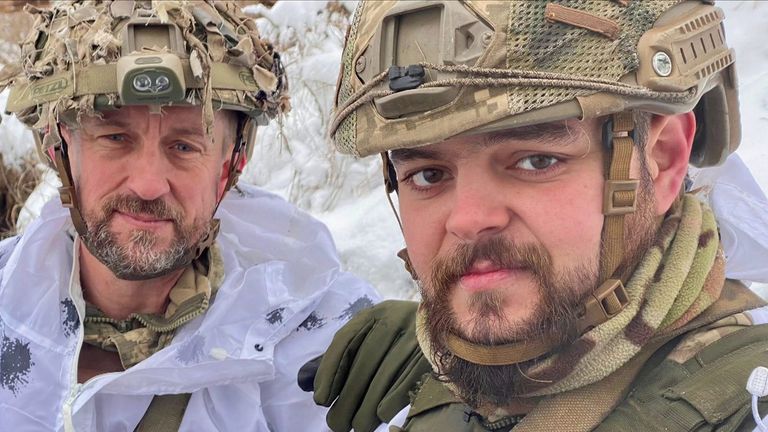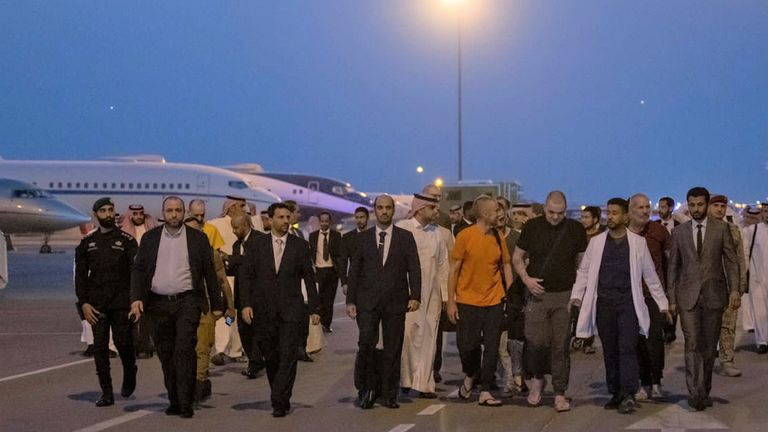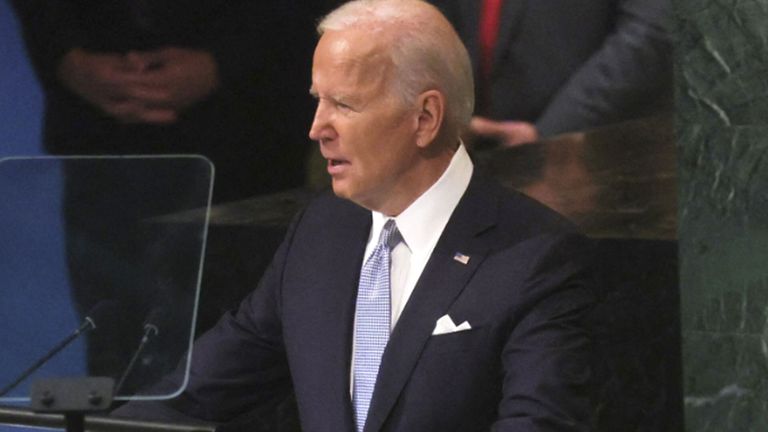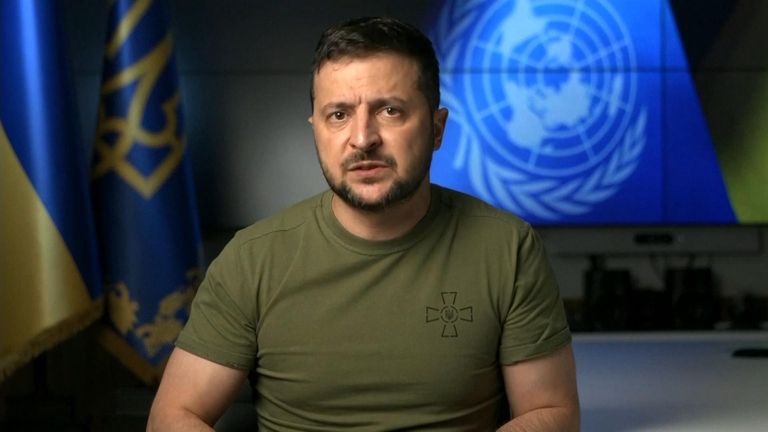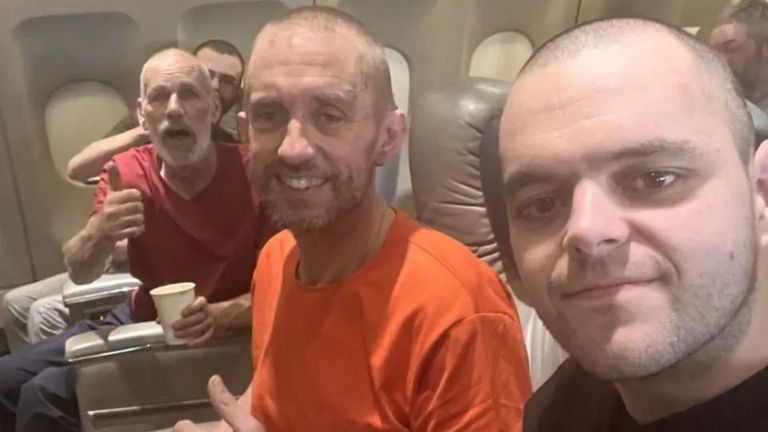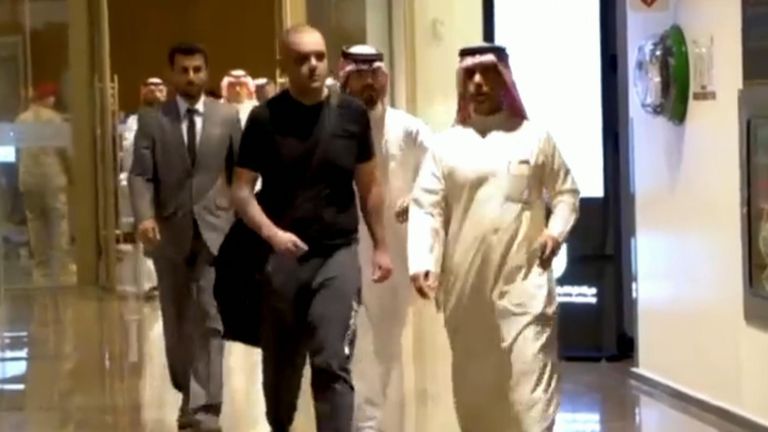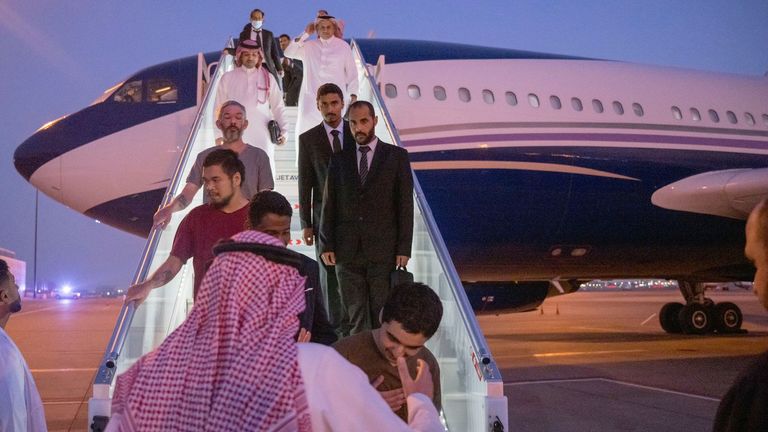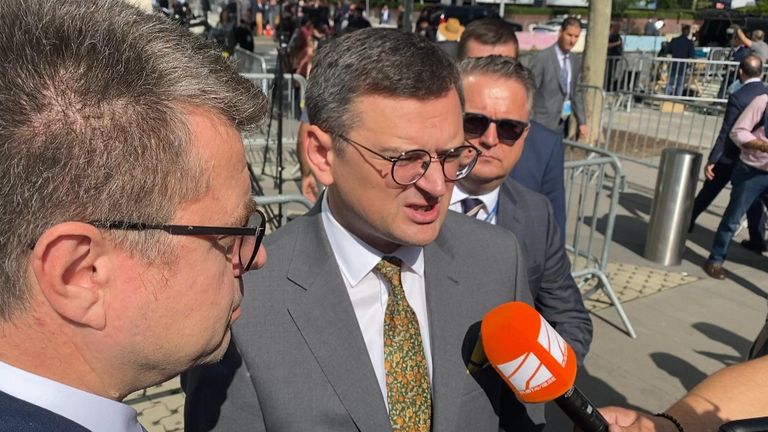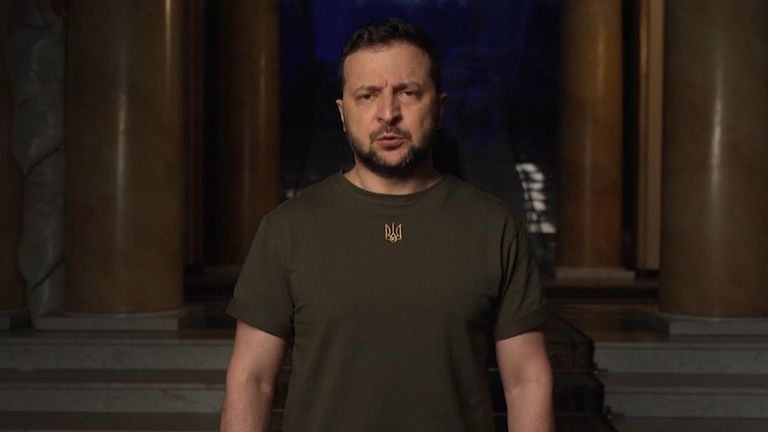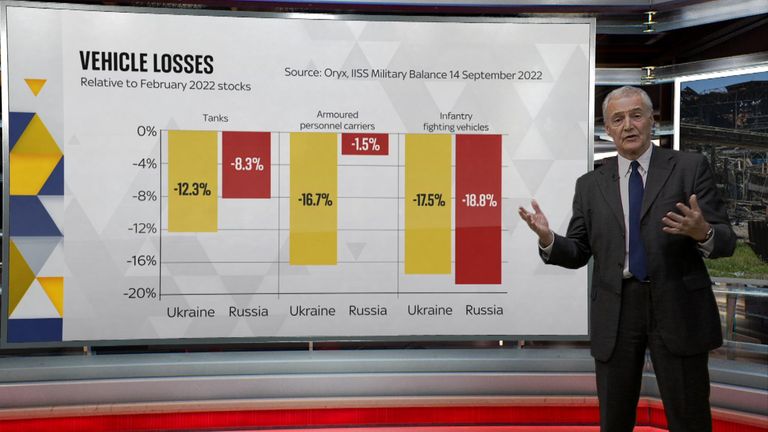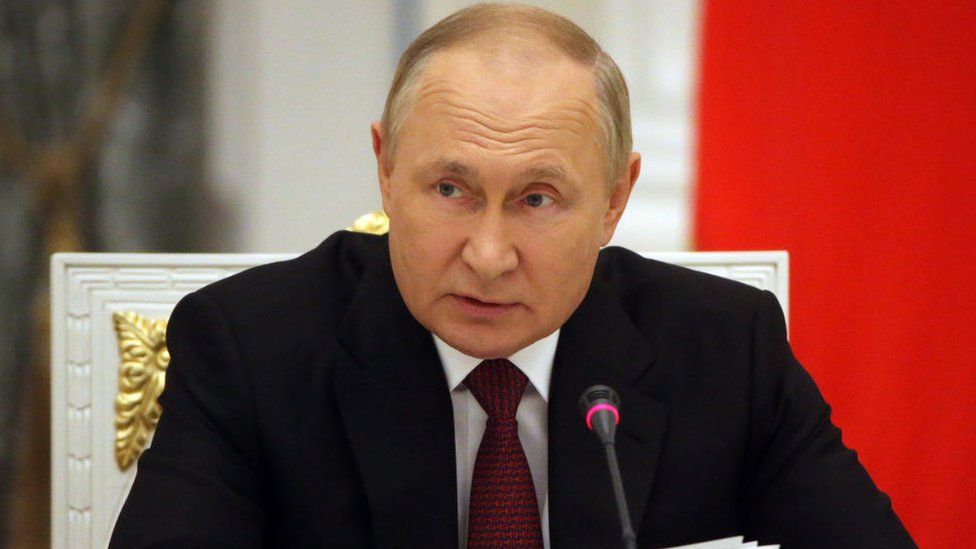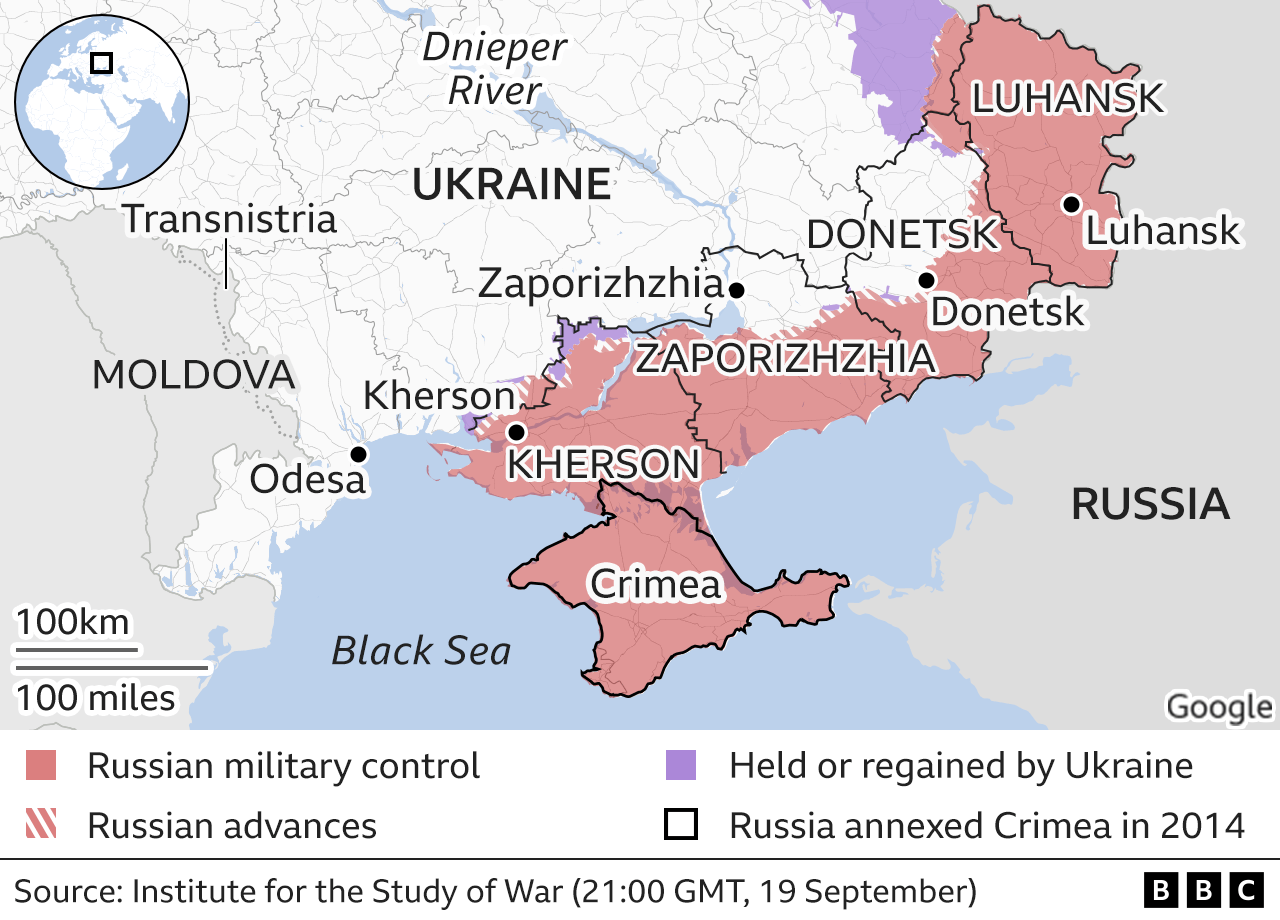The foreign secretary has called on countries to reject the "charade" of referenda to be held in Russian-controlled regions in eastern and southern Ukraine.
Speaking at the United Nations Security Council, James Cleverly said Vladimir Putin plans to fix the results of votes on becoming parts of Russia.
It comes as a prosecutor at the International Criminal Court (ICC), Karim Khan, told the council there were "reasonable grounds" to believe war crimes had been committed in Ukraine.
Mr Cleverly said: "We have information which means that we know that Russia is about to hold sham referenda on sovereign Ukrainian territory with no basis in law under the threat of violence after mass displacements of people in areas that voted overwhelmingly for Ukrainian independence.
"We know what Vladimir Putin is doing. He is planning to fabricate the outcome of those referenda, he is planning to use that to annex sovereign Ukrainian territory, and he is planning to use it as a further pretext to escalate his aggression.
"We call on all countries to reject this charade and to refuse to recognise any results."
Russian foreign minister walks out of UN summit after speech - Ukraine latest
The security council meeting in New York came a day after the Ukraine conflict threatened to spiral into a nuclear crisis as Mr Putin warned his country would use "all the means at our disposal" to protect itself.
Mr Khan, the ICC prosecutor, said he was dispatching more staffers next week to look into allegations emerging from eastern Ukraine.
He hasn't yet announced any charges linked to the conflict, but said he believes there are reasonable grounds to think that crimes within the jurisdiction of the court had been committed.
The Hague-based court handles war crimes, crimes against humanity, genocide and crimes of aggression.
"The picture that I've seen so far is troubling indeed," he said.
Mr Cleverly said the "devastating consequences" of Russia's invasion of Ukraine are becoming clearer every day.
Addressing his counterparts at the special foreign minister-level meeting, he said: "We see the mounting evidence of Russian atrocities against civilians, including indiscriminate shelling and targeted attacks on over 200 medical facilities and 40 educational institutions and horrific acts of sexual violence."
He said in parts of Ukraine under Russian control, civilians are subject to torture, arbitrary detention and forced deportation to Russia.
The foreign secretary spoke right after Sergei Lavrov, but the Russian foreign minister left the chamber straight after his turn.
Russia is outnumbered on the security council, but any meaningful action on Ukraine by the 15-member body has been hampered because it is a veto-wielding permanent member.
US Secretary of State Antony Blinken earlier told the meeting that "one man chose this war, one man can end it".
The conflict in Ukraine has dominated talks at the United Nations General Assembly in New York, where world leaders and senior diplomats from across the globe have descended.
On Tuesday, separatist leaders in four Russian-occupied regions of Ukraine announced plans to begin voting to become integral parts of Russia.
Read More:
What will holding referenda mean for parts of Russia-occupied Ukraine?
Briton released in Russia-Ukraine prisoner swap pictured with his family
Mr Putin gave a rare address to the nation the following day, where he said he said he wasn't bluffing and would use "all the means available to us" if Russian territory was threatened.
The Russian leader also ordered a "partial mobilisation" of military reserves - sparking mass protests on the streets of Moscow that led to over 1,300 arrests.
In her first speech on the world stage as prime minister, Liz Truss said Mr Putin was desperately trying to justify a "catastrophic" failure in Ukraine and accused him of "sabre rattling".
https://news.google.com/__i/rss/rd/articles/CBMiggFodHRwczovL25ld3Muc2t5LmNvbS9zdG9yeS9mb3JlaWduLXNlY3JldGFyeS1qYW1lcy1jbGV2ZXJseS1jYWxscy1vbi1jb3VudHJpZXMtdG8tcmVqZWN0LXB1dGlucy1zaGFtLXJlZmVyZW5kYS1pbi11a3JhaW5lLTEyNzAzNDU40gGGAWh0dHBzOi8vbmV3cy5za3kuY29tL3N0b3J5L2FtcC9mb3JlaWduLXNlY3JldGFyeS1qYW1lcy1jbGV2ZXJseS1jYWxscy1vbi1jb3VudHJpZXMtdG8tcmVqZWN0LXB1dGlucy1zaGFtLXJlZmVyZW5kYS1pbi11a3JhaW5lLTEyNzAzNDU4?oc=5
2022-09-22 19:41:15Z
1576150123
